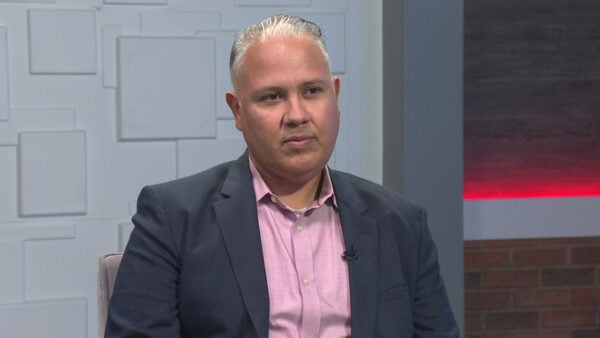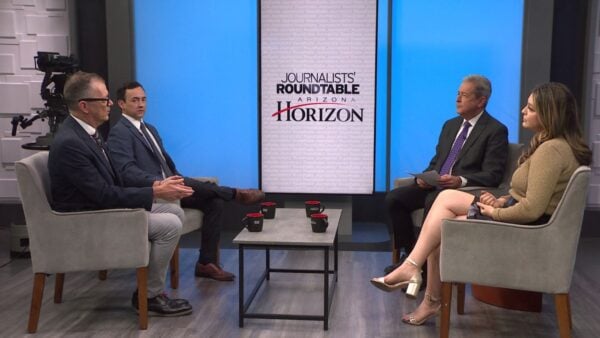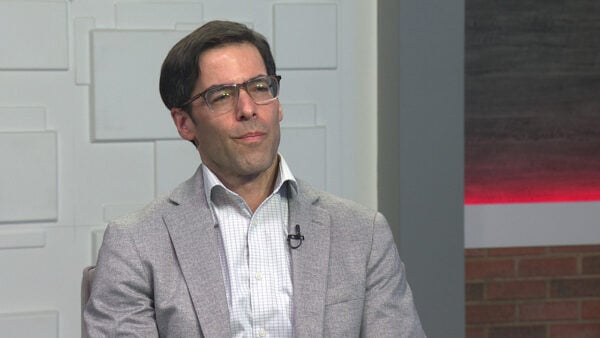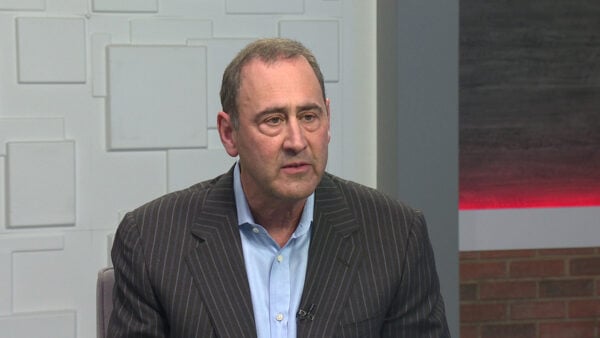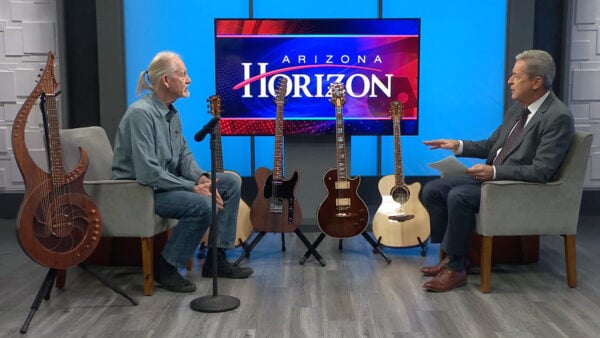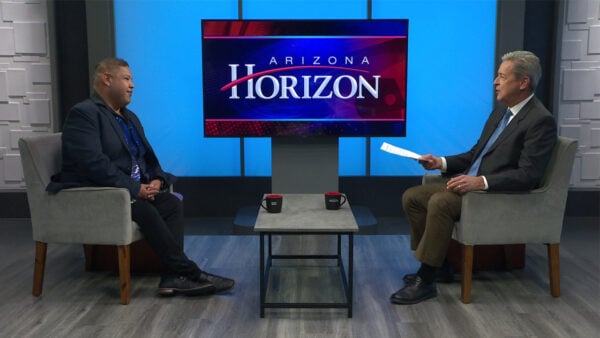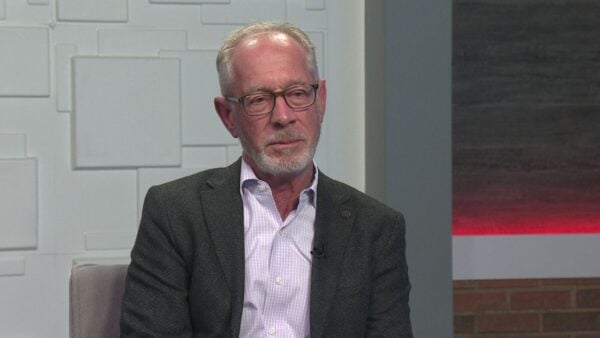The U.S. Court of Appeals for the Fifth Circuit struck another blow to President Obama’s order that gives protection to up to five million people against deportation. The court upheld a lower court injunction that blocks the Obama Administration from implementing the deferred deportation plan. Arizona State University law professor Evelyn Cruz will explain the ruling.
TED SIMONS: Coming up next on "Arizona Horizon," why a federal appeals court ruled against President Obama's latest executive order on immigration. Also tonight, a look at the increasing problem of student debt and Phoenix is honored for using technology to engage residents. Those stories next on "Arizona Horizon."
VIDEO: "Arizona Horizon" is made possible by contributions from the friends of 8, members of your Arizona PBS station. Thank you.
TED SIMONS: Good evening. Welcome to "Arizona Horizon." I'm Ted Simons. The U.S. Court of Appeals for the fifth circuit has upheld a lower court injunction that blocks the Obama administration from implementing the president's deferred deportation plan which protects up to 5 million undocumented immigrants. Here to talk more is Evelyn Cruz. Good to see you again. Thanks for join us. The fifth circuit Court of Appeals made this decision. First give us a better definition of what exactly they blocked and why.
EVELYN CRUZ: Well, basically, last November the administration issued a memorandum saying that they had parameters of providing for the parents of children born in the United States to provide them with no removal process, and issue them work authorizations as part of their administration of the immigration laws. They set priorities so they have decided that this group would be evaluated for protection from being deported.
TED SIMONS: So they set the parameters for this particular deportation process. 26 states I believe sued.
EVELYN CRUZ: correct. They filed suit in the southern part of Texas and the judge was asked to decide whether they had standing to sue and whether or not the administration had overstepped its powers given to it through the INA, the immigration act.
TED SIMONS: The Texas federal judge said yes, you have standing, yes, the president overstepped, goes to the fifth circuit Court of Appeals. So two to one vote they agreed?
EVELYN CRUZ: Correct. They pretty much echoed the decision of the lower court that in their belief the states had standing to sue because they were going to face a lot of mounting it cost from individuals who now would be eligible for other benefits, state benefits, simply because they now had work authorization. In addition they found the APA had been violated. The administration should have issued resolutions and had asked for comments on those regulations which is required for any administrative process.
TED SIMONS: When the court says, now a judge and the circuit court, when they say the Obama administration overstepped its bounds is it not so much the administration said threes folks deportation is delayed but the process in getting to that decision?
EVELYN CRUZ: Twofold. To some extent they are saying that the president may have overstepped his authority under the administration of the immigration statutes, but there's more solid ground that he violated the procedures act.
TED SIMONS: Sounds like the fifth circuit also found Texas federal judge did not abuse discretion in making this a nationwide ban as part of appear standing situation?
EVELYN CRUZ: Yes. It's a twofold question. One is whether or not this affects other states similarly situated to the 23 that sued and the judge found that it was. It was across fabric of the nation basically and the second thing is that it felt that they had shown harm in the administration of this process. Therefore, they were entitled to bring the grievances to court.
TED SIMONS: Obama administration basically said it was within the administration's rights to defer deportation of some. Did that not hold up or have we not hit that part of the argument yet?
EVELYN CRUZ: To some extent the argument is that under the IMA, the Attorney General is given discretion by the Congress to administer the immigration process and to make decisions as to whether or not they will process certain individuals or not. The problem in this case is that the administration said we are not going to go after X type of person but each individual will be evaluated. The court is not buying the argument. They say no, no, no, you're going to basically rubber stamp anyone who fits under this general parameters. Therefore you're not doing an evaluation as you're supposed do under the immigration act.
TED SIMONS: Interesting. Two to one vote, the lone dissenter called this the quintessential exercise of prosecutorial discretion, which does make you wonder if this is not prosecutorial discretion, what is?
EVELYN CRUZ: Right. To some extent the dissenter said the administration laid out the parameters but doesn't say never will get work authorization automatically. There's a process by which this individual has to apply has to prove they have the elements required to obtain that, and part of it is evaluating whether it is in the best interests of the United States not to deport that individual.
TED SIMONS: You talked about states having standing. There was some part of the argument that it wasn't the court's place to be concerned as to how the executive order would impact states. The law itself how it would impact states. If Congress wants to change the law Congress can change the law but don't come to us for it. Is that basically it?
EVELYN CRUZ: the dissenter is clear he thinks the court is meddling in a question of whether or not there is a proper reading of the statute and that Congress should be the one who decides whether or not the statute is properly done. There is a standing question because the fact of the matter is that normally states do not have the power to challenge the situation unless they are going to what they call quasi sovereign interest in that case. Makes a point that the majority is relying on a case where the Massachusetts, the state of Massachusetts had challenged the EPA, and the Supreme Court said you have standing because you were going to be individually harmed, however, that statute in question included provision for the states to have power to sue.
TED SIMONS: Interesting.
EVELYN CRUZ: So I think if this does end up in the Supreme Court standing is one of the Supreme Court's favorite subjects so more likely than not will address it.
TED SIMONS: Will it ends up in the Supreme Court?
EVELYN CRUZ: It depends on the court and where they want to go with it. It will not be the first time they are looking at a case not completely decided below but given that we have 23 states involved, given that it involves the presidential powers, administration of the immigration act, in my -- decide that they want to take this.
TED SIMONS: Would it have to go back to the Texas federal court first to get a final word on this, then go the Supreme Court, or can the administration go directly to the high court?
EVELYN CRUZ: It seems it has to be sent back for it to be acknowledged like we did in Arizona BUS, and then from that the government can petition to the Supreme Court to review.
TED SIMONS: Last question. Were you surprised that the fifth circuit decided what it did?
EVELYN CRUZ: I was somewhat surprised because just in February another panel had decided that there was no standing to -- the states did not have standing to challenge on the basic idea that they were not damaged. Selection sometimes of what panel you get. There might be an enbank request but most likely they would avoid, which means bringing it to the entire fifth circuit. Because you also have that case in February, that gives more reason for the Supreme Court to perhaps examine it.
TED SIMONS: Good stuff. Evelyn, thanks for joining us.
EVELYN CRUZ: Thank you.
Evelyn Cruz:Arizona State University law professor










